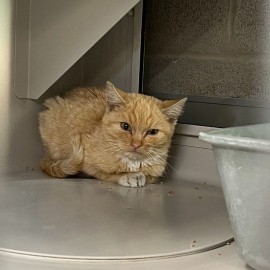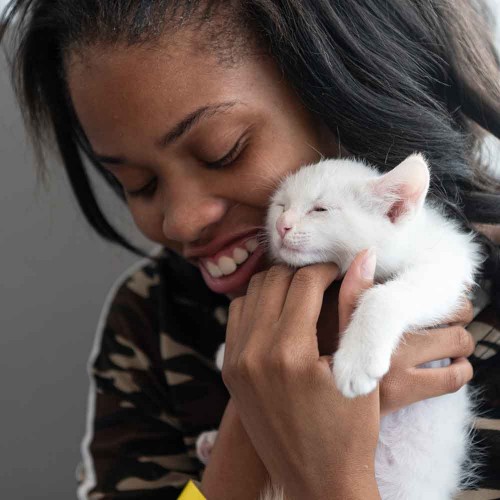
?
Anxiety isn’t just for humans; cats too can get anxiety. Cats have personalities that are prone to anxiety. Anxiety is the anticipation of the future dangers from unknown or imagined origins that resulted to normal body reactions known as (physiologic reactions) associated with fear; most common visible behaviors are elimination, destruction, and excessive vocalization.
If you are worried your feline fur baby is anxious, these are the signs to look out for so you can help calm your little kitty:
Extra Aggressive
A well-behaved pet wouldn’t go repeatedly berserk on you without a solid motive, so try to discover the root of the problem and fix it for them. For a cat that needs attention boredom can result to anxiety, and taking out their frustrations on your belongings is another way they can express their discontent to you.
Grooming Can’t Stop in Cat
Every pet parent appreciates a fastidiously clean cat. More so if your cat is grooming itself all day, this is a sign of anxiety. You may also notice that your cat is grooming so much that she is starting to lose her hair on some parts of her body.
Neglecting the Litter Box
If your cat suddenly stops using the litter box and starts peeing in other places in your house, they’re trying to pass a message. Once you’ve ruled out any physical and mental problems, like a urinary tract infection, have tried different litters, and added an extra litter box with no success; it’s okay to consider that your cat is anxious.
Eating Habit Changes
Eating or choosing not to eat is a way for them to deal with their anxiety and a common sign that there is an underlying issue present. Cats that eat everything in sight, or stop eating altogether, could be suffering from anxiety.
Avoids Normal Activities
You will find out that your cat avoid things they usually love to do. If your cat avoid doing activities that they normally do, this could be potentially be a sign of anxiety. Look out for when they play less often and also when they start avoiding you.
Giving your cat a quiet place to hide and rest, where they feel comfortable is a great start. However, each cat is different, which is why it’s important to work on a treatment plan with your vet. If anxiety is the underlying cause of your cat’s strange behavior, there are few ways to reassure your cat that she is not alone, by using the natural ways to alleviate your cats’ anxieties. It’s important to get to know your cat so you can try to give him/her what they want. Cats are wonderful companions, and just like people, it’s important to take care of their mental health just like you would your own.
SEPARATION ANXIETY IN CATS
Some cats can experience separation anxiety when they have to spend time apart from their owner. The reason why this happens is unknown, but researchers know that changes in routine where cats have spent more time alone can cause them to experience this separation anxiety.
Here are what you need to know about separation anxiety.
• If you provide constant affection, treats, and playtime every time your cat comes to you, they can grow dependent on you.
• If you’ve been spending time with your cat indoors and you suddenly need to spend more time outside, your cat can struggle with separation anxiety.
Symptoms of Separation Anxiety
• Urinating in inappropriate places, e.g. urinating can take place anywhere including its owner’s bed.
• Not eating or drinking when the owner is away.
• Excessive vocalization, continuous crying, moaning, or meowing a lot.
• Excessive self-grooming
• Destructive behaviors
How to Reduce Separation Anxiety
It is very important to train your cats to be very comfortable when they are alone; here are few steps:
• Switch on the TV or radio channel to your preferred channels when you are at home. Keep the same channels switched on when you are not around.
• Avoid making an announcement of arrival or exists.
• Ensure your cats living area have enough distractions to help keep her occupied.
• It’s important to give your cat her own special place in your house where she can go and relax, unwind, and feel safe.
• If you have other family members at home, have them actively take part in looking after the cat, like feeding and playing with her.
• Train your cat to slowly get use to spending quality time alone. Start this process by gradually leaving your cat alone for few hours and then slowly increase it.
Recommended

It鈥檚 a Floof-Fur-All!

Happy Tails: Odin

10 Tips for Selecting the Right Cat

Daphne Found Her Forever Home!

